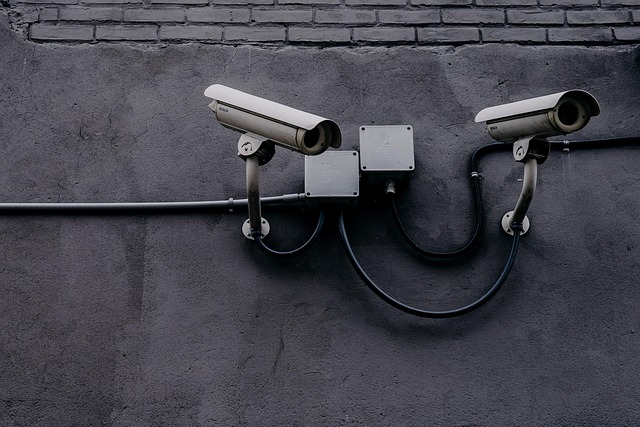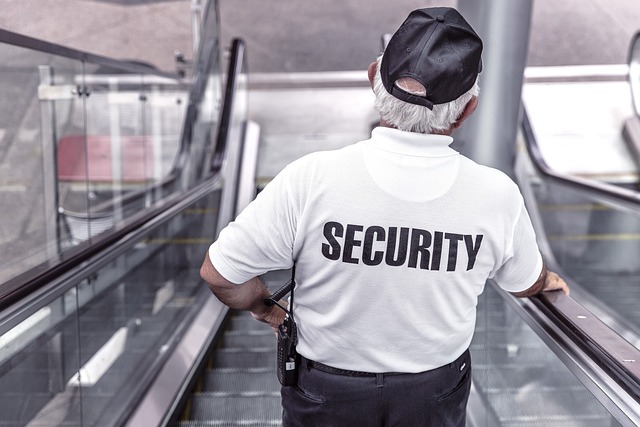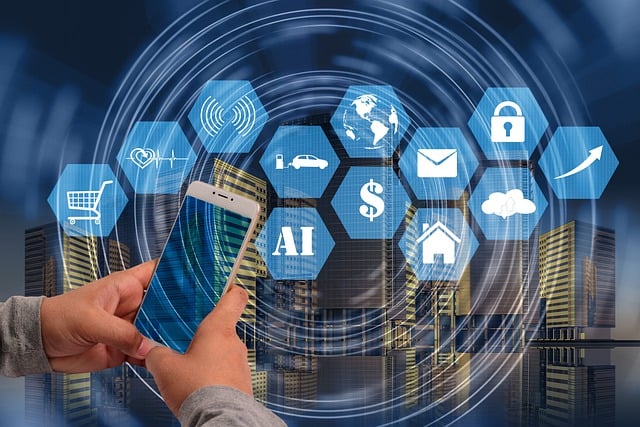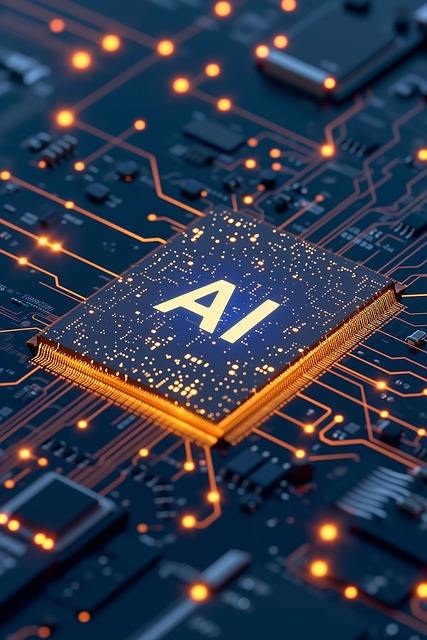Artificial Intelligence (AI) is transforming home security into a proactive, intelligent system. By leveraging machine learning, AI analyzes patterns, detects anomalies, adapts to routines, and predicts unusual behaviors, enhancing threat detection and response times. This technology improves privacy, automates security adjustments, and offers continuous monitoring, elevating the overall safety of homeowners while reducing false alarms. As AI in home security advances, ethical considerations regarding data security, transparency, and user consent are crucial for public trust in these innovative solutions, marking a significant step forward in modern security technology.
The role of AI in modernizing home security systems is transforming our living environments. Artificial intelligence security offers unprecedented potential, from enhancing surveillance with smart cameras to predicting potential threats based on data analysis. This article explores the multifaceted applications of AI in home security, including AI-driven protection systems that automate responses to threats. We’ll also delve into the ethical considerations shaping the future of this innovative technology and its advancements in modern security technology.
- Understanding AI's Potential in Home Security: Unlocking New Possibilities
- Enhancing Surveillance with Artificial Intelligence: Smart Cameras and Beyond
- The Power of Data Analysis: AI for Predictive Home Safety
- Automating Responses to Threats: AI-Driven Protection Systems
- Ethical Considerations and the Future of AI in Home Security
Understanding AI's Potential in Home Security: Unlocking New Possibilities

The integration of Artificial Intelligence (AI) into home security systems signifies a significant leap forward in modern security technology. AI’s potential to revolutionize protection is immense, offering a new level of intelligence and adaptability that traditional systems lack. By leveraging machine learning algorithms, these innovative solutions can analyze patterns, recognize anomalies, and adapt to residents’ routines, ensuring a more responsive and proactive approach to safety.
AI-driven home protection goes beyond basic monitoring. It unlocks possibilities for enhanced privacy, improved threat detection, and automated responses to potential dangers. With AI, security systems can now identify familiar faces, differentiate between residents and intruders, and even predict unusual behaviors, thus elevating the overall level of security and peace of mind for homeowners.
Enhancing Surveillance with Artificial Intelligence: Smart Cameras and Beyond

The integration of Artificial Intelligence (AI) into home security systems has revolutionized surveillance capabilities, marking a significant shift in modern security technology. Smart cameras equipped with AI algorithms can now go beyond basic video recording, detecting and distinguishing between people, vehicles, and animals. This advanced capability allows for more precise alerts and enables homeowners to respond swiftly to potential threats.
AI-driven home protection extends far beyond cameras; it encompasses the entire property. By analyzing patterns and learning routines, these intelligent systems can automatically adjust lighting, temperature, and security settings based on specific activities. Moreover, AI can predict and anticipate unusual behavior, enhancing overall safety by ensuring that every aspect of the home is secured and monitored efficiently.
The Power of Data Analysis: AI for Predictive Home Safety

The power of data analysis lies at the heart of modern security technology, and artificial intelligence (AI) is revolutionizing home security systems. AI-driven home protection leverages vast datasets to predict and prevent potential threats, transforming passive security measures into proactive ones. By learning from patterns and anomalies in behavioral data, these advanced algorithms can anticipate unusual activities, such as suspicious movements or irregular schedules, long before they escalate into security breaches.
This capability is underpinned by AI security advancements that enable continuous monitoring and adaptive learning. Unlike traditional systems, which primarily react to detected events, AI-powered solutions evolve with time, becoming more effective at identifying genuine threats from false alarms. This enhances not only the accuracy of home security but also reduces the burden on homeowners and security personnel, ensuring a safer and smarter living environment.
Automating Responses to Threats: AI-Driven Protection Systems

AI is transforming home security by automating responses to threats, ushering in a new era of smart and proactive protection. Traditional systems often rely on manual intervention, but AI-driven home protection systems can detect anomalies and potential dangers faster and more accurately. These advanced technologies leverage machine learning algorithms to analyze patterns in sensor data from cameras, doors, and windows. Once an unusual activity is identified, like an unauthorized entry attempt or suspicious movement, the system activates automated responses tailored to each specific threat scenario.
The integration of AI in home security enhances not only speed and accuracy but also reduces human error. By continuously learning from new data inputs, these systems become increasingly adept at recognizing normal routines versus potential intrusions. This allows for more effective and efficient protection, providing peace of mind for homeowners and a powerful deterrent against would-be intruders. Modern security technology powered by artificial intelligence is redefining the boundaries of safety in the home environment.
Ethical Considerations and the Future of AI in Home Security

As AI continues to advance and integrate into our daily lives, its role in modernizing home security systems becomes increasingly significant. While the benefits of AI-driven home protection are substantial—from enhancing surveillance capabilities with advanced analytics to enabling proactive threat detection—it’s crucial to address ethical considerations surrounding this technology.
The future of AI in home security requires a delicate balance between leveraging its analytical power and respecting privacy rights. As AI security advancements gather momentum, ensuring the responsible use of data, transparency in algorithms, and user consent becomes paramount. Developers and implementers must navigate these challenges to realize the full potential of modern security technology while fostering public trust in AI-driven safety solutions.






